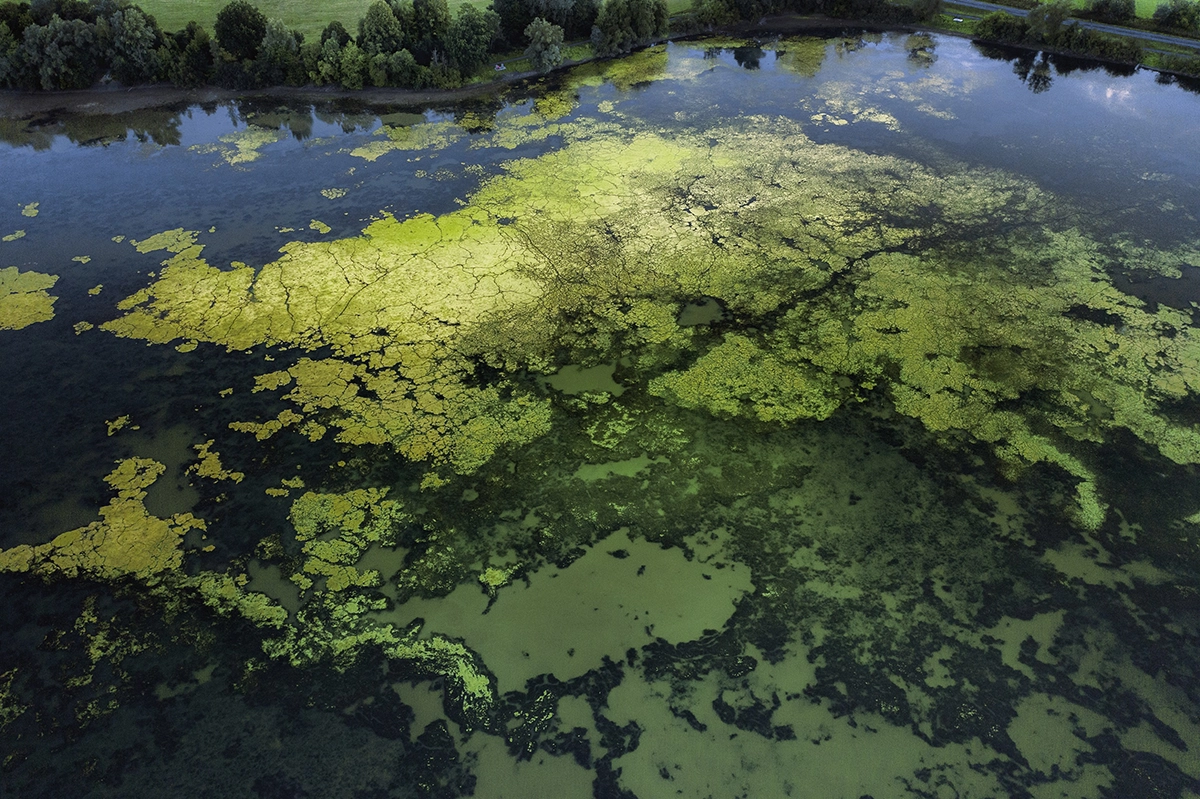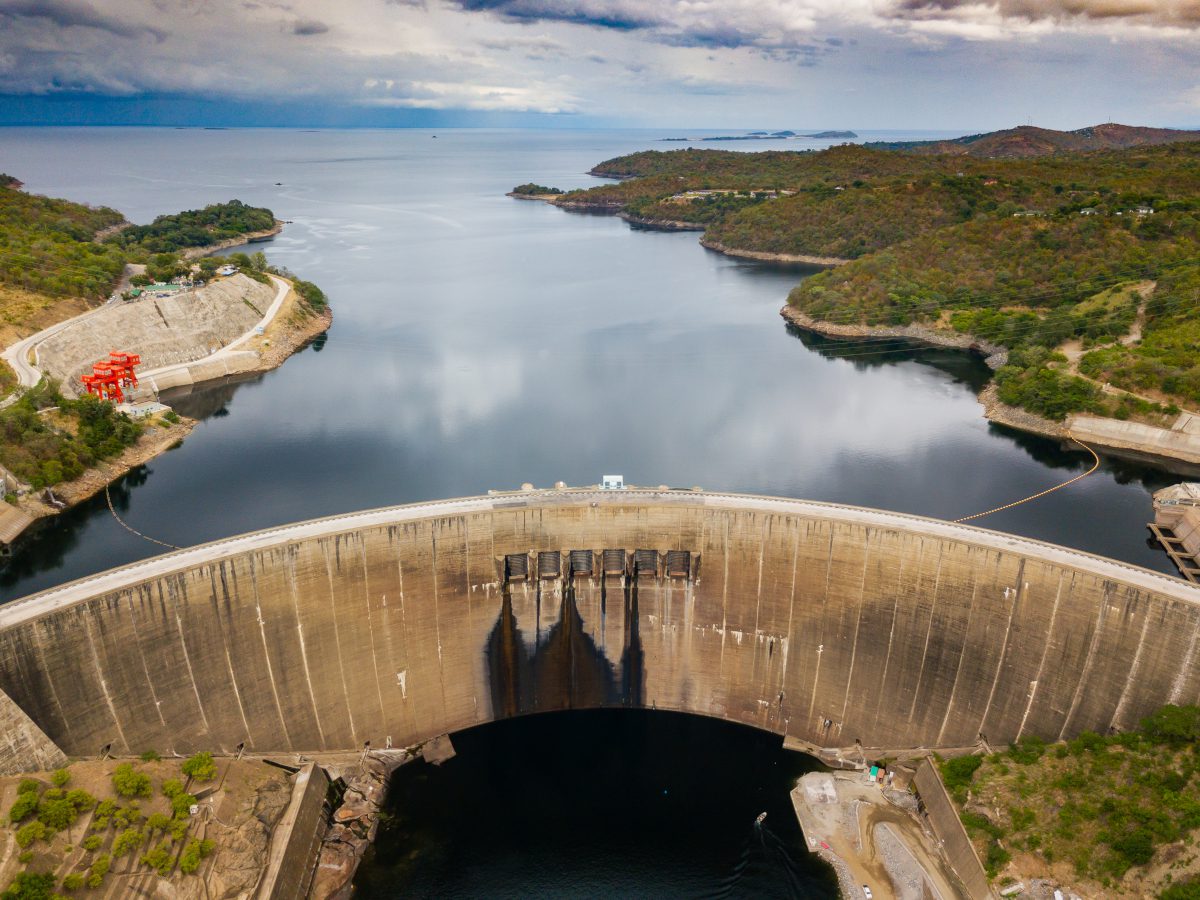The Army Corps of Engineers, citing a recent national energy emergency order by President Trump, has expedited a permit review for a new miles-long section of an oil and gas pipeline that would bore deep into protected wetlands bordering Canada and the United States.
The pipeline request from Enbridge Energy, a Canadian company, would cut beneath the Straits of Mackinac—the connecting waterway between Lakes Michigan and Huron—to install a tunnel 12 times as wide as above-ground existing pipelines. Tribal groups that had been cooperating with the Corps’ environmental impact statement for the project pulled out when they learned of the emergency review. The Corps announced April 15 that the project, known as Line 5, fits under Trump’s January order.
The project is part of a 645-mile pipeline between Superior, Wisconsin, and Sarnia, Ontario, that transports about 22 million gallons of oil and natural gas liquids daily, according to the company website.
We’re hiring!
Please take a look at the new openings in our newsroom.
See jobs
The Corps’ decision to expedite consideration came days before a sweeping change by the U.S. Department of Interior to hasten energy reviews. The federal agency said beginning April 23 that energy-related projects and, specifically, environmental impact reviews of such projects will move with unprecedented speed and with truncated public comment. Energy, under Trump’s order, refers to fossil fuels such as oil, gas, and coal, along with geothermal, nuclear and hydropower.
The Corps operates within the Defense Department, not the Interior Department. While the Interior policies do not apply to Line 5, they are likely to accelerate fossil fuel projects in the coming months. New emergency procedures from both departments in response to Trump’s executive order are “really ploughing new ground,” said Dave Scott, a senior attorney at the Environment Law & Policy Center, a legal advocacy group.
“There is a massive and real risk that the public won’t be able to engage meaningfully with decisions that government agencies like the Corps are making that have significant impacts on the environment,” Scott said.

The Interior Department announced last week it was pursuing what it called an “alternative National Environmental Policy Act,” to allow for sharply compressed timelines for projects that “strengthen domestic energy supply.” Projects that require an environmental assessment, which the department said now takes a year to complete, will be reviewed within 14 days. Projects in need of an environmental impact statement, which the department said can result in two years of study, will be reviewed in “roughly 28 days,” according to its announcement.
Scott also noted a second executive order, Unleashing American Energy, further erodes environmental protections for new projects. It directs the Council on Environmental Quality to consider rescinding National Environmental Policy Act regulations, which are the rules that require federal agencies to consider environmental impact when issuing permits.
Environmental groups have questioned the need and the rationale behind the pipeline change.
“We know that there is no national energy emergency,” said Julie Goodwin, senior attorney at Earthjustice, the country’s biggest public interest environmental firm. The U.S. produces more crude oil than any other country, ever, and has for the past six years. The emergency process “is really a gift to the fossil fuel industry,” Goodwin said.
At issue is Enbridge’s replacement of two 20-inch diameter pipelines now buried close to shore and resting or supported on the lakebed. Instead, it wants to dig a 3.6-mile-long tunnel, with a 21-foot diameter pipeline, into the Straits’ lakebed.


The Corps is still developing an environmental impact statement for the Straits project, which it acknowledges will “permanently impact 1.52 acres of wetlands, including 1.01 acres within the Corps’ responsibility under Section 404 of the Clean Water Act.” The statement is expected in June.
“The Detroit District has not yet determined the length of the public comment period for its Line 5 Tunnel,” the Corps said in an email. The standard comment period is 60 days, but the Corps’ new policy for emergency reviews is 15 days.
The Interior Department announcement last week may indicate a new public comment timeline in store for energy-related projects. In some cases, public comment at Interior would depend largely on the decision of department officials. Proposals found to have “no significant impact” during an internal department assessment will have a report issued on a public website, the announcement said, and no public comment is required.
For projects “likely to have significant environmental impact,” a department official “can determine the duration of the written comment period based on the nature of the action and the urgency of the emergency response, and the Department anticipates that most comment periods will be approximately 10 days,” Interior’s announcement said.
This story is funded by readers like you.
Our nonprofit newsroom provides award-winning climate coverage free of charge and advertising. We rely on donations from readers like you to keep going. Please donate now to support our work.
Donate Now
Regarding the pipeline project before the Corps, seven local tribes described the shortened environmental impact statement (EIS) process as “unacceptable.”
A letter was sent in March to the Corps and signed by representatives from the Bay Mills Indian Community, Little River Band of Ottawa Indians, Sault Ste. Marie Tribe of Chippewa Indians, Grand Traverse Band of Ottawa and Chippewa Indians, Match-E-Be-Nash-She-Wish Band of Pottawatomi, and Nottawaseppi Huron Band of the Potawatomi.
“Tribal Nations are no longer willing to expend their time and resources as Cooperating Agencies just so their participation may be used by the Corps to lend credibility to a flawed EIS process and document,” the letter said. The Corps “has disregarded its commitments to cooperating agencies and its obligations under the National Environmental Policy Act by fully aligning itself with the applicant [Enbridge] at every step.”
The emergency review process “is really rewriting and bypassing critical and important laws for an unneeded pipeline,” said Beth Wallace, director of climate and energy at the National Wildlife Federation, the nonprofit conservation education and advocacy group.
Enbridge has said the existing pipes, which date back to 1953, need replacement to prevent a possible oil spill. Burying the new pipeline section as much as 100 feet below the lakebed would “eliminate the chance of a pipeline incident in the Straits,” according to the project website.


“Line 5 is critical energy infrastructure,” Enbridge said in an email to Inside Climate News. The tunnel project is “designed to make a safe pipeline safer while also ensuring the continued safe, secure, and affordable delivery of essential energy to the Great Lakes region.” On its website, the company called its supply to Michigan “vital” and said that “Line 5 supplies 65% of propane demand in the Upper Peninsula, and 55% of Michigan’s statewide propane needs.”
Tribal groups, citizens, and environmentalists have called for decommissioning the pipeline out of concern for risks to freshwater sources and local ecosystems. The Great Lakes are the largest freshwater system on the planet, providing clean drinking water to more than 40 million people in the U.S. and Canada.
“Enbridge’s own pipelines have capacity to pick up product and move it to the same exact refineries and facilities,” said Wallace of the National Wildlife Federation. Investing further in fossil fuel infrastructure also runs counter to Michigan’s plan to reach 100 percent carbon neutrality by 2050, she added.
An economic analysis by PLG Consulting, a Chicago-based logistics firm, examined how shutting down Line 5 could impact energy markets. “Surging output” has made North America energy independent and “there is no risk of supply shortages,” the PLG report from October 2023 found. There are a “multitude” of alternative supply sources from both domestic and international sources that could fill in for Line 5. Even today, no refinery relies entirely on Line 5 for its crude oil supply, the PLG report said.
Enbridge is still waiting on several federal and state permits before it can begin construction. The state of Michigan issued environmental permits for the tunnel project in 2021 but those will expire next year. Enbridge re-applied earlier this year to renew the permits.
The Michigan Public Service Commission approved the tunnel project in 2023 although Enbridge still needs the permitting decision from the Army Corps.
The activist group Oil and Water Don’t Mix is also urging citizens to demand that Gov. Gretchen Whitmer deny the pipeline permit to protect the Great Lakes. “The state of Michigan has the opportunity to shut down Line 5,” Earthjustice’s Goodwin said. “And that’s what should happen.”
About This Story
Perhaps you noticed: This story, like all the news we publish, is free to read. That’s because Inside Climate News is a 501c3 nonprofit organization. We do not charge a subscription fee, lock our news behind a paywall, or clutter our website with ads. We make our news on climate and the environment freely available to you and anyone who wants it.
That’s not all. We also share our news for free with scores of other media organizations around the country. Many of them can’t afford to do environmental journalism of their own. We’ve built bureaus from coast to coast to report local stories, collaborate with local newsrooms and co-publish articles so that this vital work is shared as widely as possible.
Two of us launched ICN in 2007. Six years later we earned a Pulitzer Prize for National Reporting, and now we run the oldest and largest dedicated climate newsroom in the nation. We tell the story in all its complexity. We hold polluters accountable. We expose environmental injustice. We debunk misinformation. We scrutinize solutions and inspire action.
Donations from readers like you fund every aspect of what we do. If you don’t already, will you support our ongoing work, our reporting on the biggest crisis facing our planet, and help us reach even more readers in more places?
Please take a moment to make a tax-deductible donation. Every one of them makes a difference.
Thank you,


















